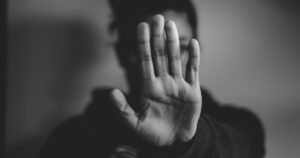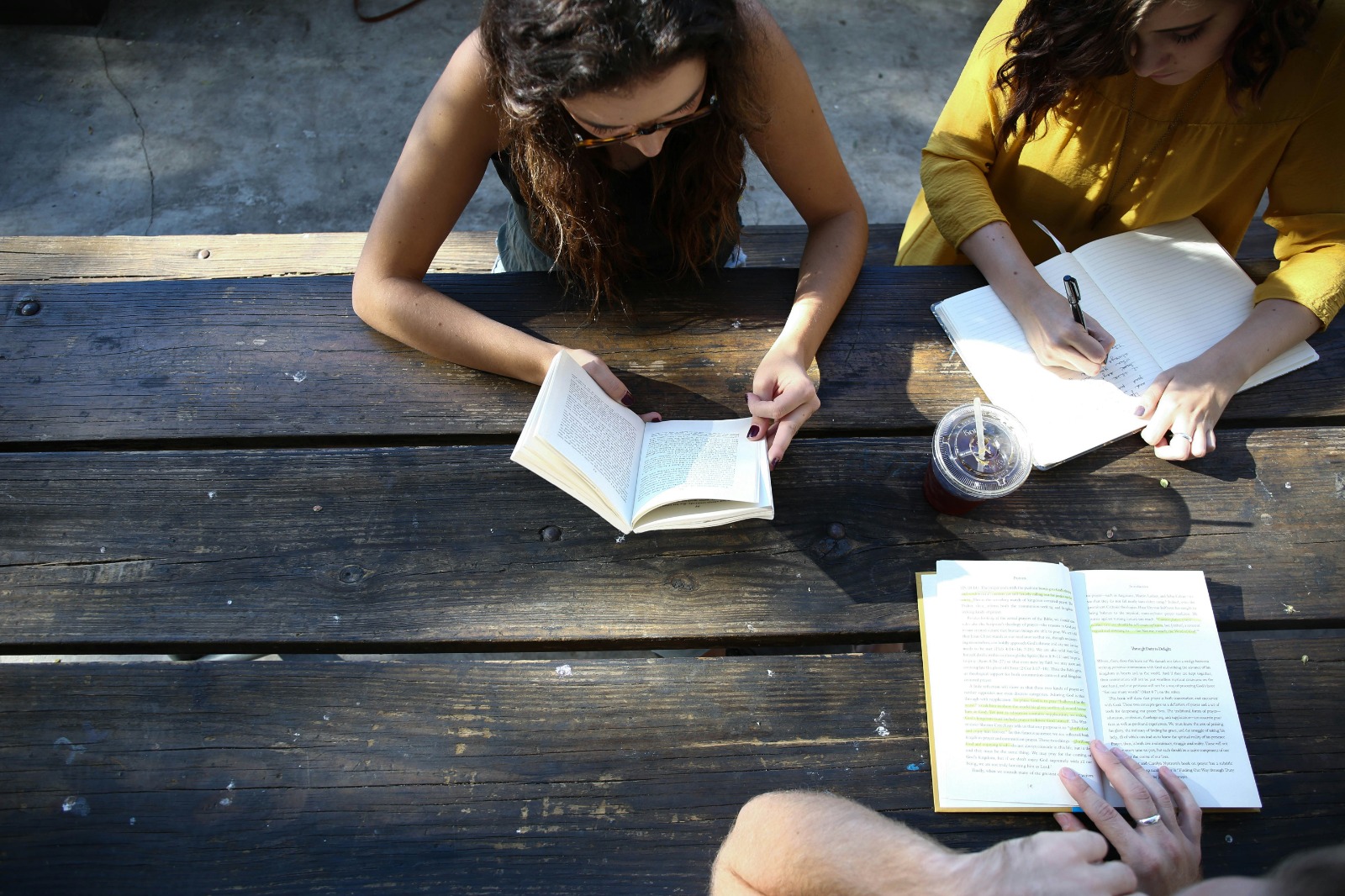Muffled cries pierce the silence of a dingy Mumbai flat. Disha, a 21-year young trans woman, cowers as blows rain down. Her partner, a cisgender lesbian, stands over her, face contorted in rage. This scene plays out behind closed doors across India’s sprawling cities, quaint towns, and remote villages – part of a violent epidemic that thrives unseen.
Intimate partner violence (IPV) corrodes countless queer relationships, its corrosive impact amplified by society’s indifference. Cis-het narratives dominate India’s discourse, rendering queer experiences invisible. Survival stories remain locked in shadows, justice remains an elusive dream. But queer IPV is no phantom menace. Hard data reveals its claws sink deep. When lockdowns were enforced, there arose significant worries regarding the surge in intimate partner violence incidents, which are often overlooked, and the welfare of survivors. In the UK alone, calls to the National Domestic Abuse Helpline surged by 65% within the initial months of the pandemic’s onset. Similarly, non-Western nations like India witnessed a stark 47.2% rise in domestic violence cases between March and May 2020 according to National Centre for Biotechnology Information (NCBI) data.
“People feel queer IPV is rare as gender roles don’t apply. This is false – toxic control and power imbalances exist regardless,” asserts Tanvi Sharma, an NYU Ph D scholar of gender studies researching how abuse is a human rights violation.
Delhi-based Naz Foundation’s IPV reports rupture society’s wilful blindness, thrusting queer trauma under a harsh spotlight. It warns that without urgent action, countless lives will remain captive to violence whilst abusers walk free.
 The façade of legal protection
The façade of legal protection
Do India’s laws shield queer IPV survivors? On paper, safeguards seem robust – the Domestic Violence (DV) Act defines abuse expansively whilst judgments decriminalizing homosexuality cement constitutional rights and protections for the LGBTQIA+ community. However, lived reality renders this façade hollow. Although gender-neutral, the DV Act’s paternalistic title fuels perceptions that it exists solely for female victims. Police thus dismiss queer persons, especially trans men, reporting abuse.
“When I complained, officers kept saying the DV Act is for women, so it doesn’t cover me,” reveals Aryan, a 20-year-old trans man from Delhi abused by his cis gay partner. “They insisted I must’ve provoked it with my ‘aggressive’ trans identity.”
On paper, the Indian legal framework appears comprehensive, with laws like the Indian Penal Code (IPC) and the Protection of Children from Sexual Offences (POCSO) Act aiming to protect survivors of sexual abuse. However, in reality, these laws frequently fail to deliver justice for male victims, leaving them trapped in a labyrinth of systemic biases and implementation gaps.
“The legal system in India is ill-equipped to handle cases of male-on-male sexual abuse,” laments a prominent Delhi High Court senior advocate, who chose to comment anonymously, a legal expert who has witnessed firsthand the challenges faced by survivors. “Many legal professionals lack the necessary training and understanding to effectively navigate the complexities of these cases, leading to mishandling of evidence and misinterpretation of laws.”
One of the primary hurdles faced by survivors is the lack of recognition nd understanding of male-on-male sexual abuse within the legal fraternity itself. This lack of awareness often manifests in skepticism and prejudice, further compounding the trauma endured by survivors.
Compounding the legal challenges is the absence of a comprehensive legal framework specifically addressing male-on-male sexual abuse. The repeal of Section 377 of the IPC, which decriminalized consensual same-sex relationships, left a void in the legal landscape, creating uncertainties and ambiguities in prosecuting non-consensual acts of sexual violence against men. Authorities at the Naz Foundation are trying to fight it. Sahil Chaudhary, the head of LGBTQIA+ operations, says, “We help the community get access to legal resources to be able to even file complaints that are complicated, like that in case of major queer IPVs. We have seen the worst of complications in these and the myriad reactions that police authorities give to our complaints.”
Accessing justice remains a battle too. Whilst courts uphold queer freedoms, most judges cling to conservative mindsets. “As lawyers, we encounter inherent homophobia and transphobia across India’s judiciary,” discloses the senior high court advocate. “This leads to queer IPV cases getting dismissed or survivors being blamed.”
Vandita Morarka, founder and CEO of One Future Collective, a women and identifying collective and someone who has worked very closely with victims of queer and non-queer IPV, says, “Our laws don’t even account for the possibility of sexual violence against other genders. Amongst trans persons as well, sexual violence can oft be perpetrated by or through a person one knows and through authority figures. For example, in 2014, a trans person was allegedly raped by a police officer and two constables — this case is one amongst several which are often unreported. At other places, the laws conflict each other. For example, while University Grants Commission (UGC) guidelines allow for complaints of sexual violence to be made by persons of all genders, laws under the Indian Penal Code (IPC) only allow for complaints of sexual violence by women. This creates a gap which leaves several survivors of sexual violence without legal recourse outside the setup of their educational institutions.”
Compounding courtroom trauma, outing risks loom large. Fear of exposure coerces countless queer victims into suicidal silence instead of seeking legal redress.
Why Queer Support Systems Fail
Battling society’s ingrained incomprehension, queer IPV survivors require specialized assistance – shelters providing safe accommodation, counseling addressing unique stigma/trauma, and legal guidance attuned to their struggles. However, India’s support ecosystem remains alarmingly sparse. Mainstream domestic violence organizations like refuge shelters seldom extend empathy, safety, or recourse for queer persons. Their infrastructure and staff mindsets exclude non-cis-het issues.
“When I ran from my violent girlfriend, no shelter would take me. They kept saying only women face abuse,” despairs Pratik, a 23-year-old gay man from Bengaluru whose two FIRs of IPV and sexual assault have been rejected by the police in terms of it not being no more penalized with Section 377 that acted against “unnatural sex” and thus took action against same-sex assault cases are now no more there. Like most queer victims, homelessness amplified Pratik’s risk and helplessness.
Even queer-friendly resources like suicide helplines lack an understanding of IPV intricacies. Their largely generic approach fails victims desperate for solutions balancing healing with realities like financial/housing precarity post-abuse.
Resource gaps span India regardless of metros or small towns. But urban survivors arguably enjoy easier access to scattered support groups, ethical counsellors, and queer-progressive lawyers compared to rural victims marooned geographically/digitally.
For marginalized communities like disabled LGBTQIA+ persons or Dalit queer victims, specialized assistance is virtually non-existent. They endure amplified discrimination and isolation, suffering silently sans solidarity.
Like how Vandita states as a solution, “Community networks are key to delaying violence, if not stopping it. Leverage it and create systems that allow for informal checks that let abusers know people are watching and will take action.”
For survivors of male-on-male sexual abuse, the road to justice is fraught with complexities and uncertainties, often resembling a labyrinth from which escape seems impossible. The lack of understanding and empathy from both the legal system and society at large leaves survivors feeling isolated and marginalized, compounding the trauma they have already endured.
The story of Rahul, a 25-year-old gay man from Kolkata, is a poignant example of the challenges faced by survivors in seeking justice. Having been sexually abused by a family member during his adolescence, Rahul endured years of silent suffering before mustering the courage to speak out. However, his attempts to seek legal recourse were met with scepticism and apathy from law enforcement officials and judicial authorities alike. “I felt like nobody believed me,” Rahul recounts. “I was made to feel ashamed of what had happened to me as if it was my fault.”
The ordeal faced by survivors like Rahul underscores the urgent need for a paradigm shift in societal attitudes and legal frameworks surrounding male-on-male sexual abuse. Without adequate support and intervention, survivors are left to grapple with the long-term consequences of their trauma, often leading to profound psychological and emotional scars.
Unlearning toxic attitudes
Whilst legal reform and resource expansion is vital, eradicating queer IPV requires grappling with societal mindsets weaponizing stigma against victims.
Polluting public attitudes, and toxic stereotypes label queer relationships as sexually deviant, denying their emotional intimacy and vulnerability to abuse. India’s caste system also compounds discrimination, trivializing queer Dalit voices. Kritika, a non-binary Bahujan activist stated how caste interferes with the community’s larger apathy. “When already on the bylines as a part of the queer community, adding to that is the additional pressure of being a lower caste. It’s a dangerous mix. You are made to feel that what you feel that your both forms of marginalization don’t make you even more vulnerable.”
Religious forces foster further marginalization. Hindu right-wing groups propagate homophobic/transphobic propaganda like how Dattatreya Hosabale, a prominent RSS leader, tweeted about how homosexuality is “immoral” and needs “to be treated as a “psychological case” or how Deepa Mehta’s 1996 film “Fire”, one of the foremost showcases of homosexual love on main screens, was faced with fatal bans and cinema stormings by several Hindu far right subsidiaries as the “film’s theme is alien to our culture”, escalating violence risks. Christian/ Islamic queer survivors also battle faith-based conversion therapy abuse alongside intimate partner violence. Raman, a 23-year-old gay man from Kerala says this, “I come from an orthodox Syrian Christian family, they already believe I am an abomination. When I was abused, I couldn’t even go to my family because they wouldn’t understand it or even show me empathy.”
Media representations largely demonise or mock queer personas as psychologically warped, reducing mass empathy towards issues like IPV. Portrayals celebrating queer love/friendships remain rare. Collective indifference fosters an environment allowing queer abusers to exploit victims freely without scrutiny. It also pressures survivors into hiding trauma to retain personal/community ‘respect’, preventing healing.
In a society where masculinity is often equated with strength and invulnerability, the notion of male victimhood is met with disbelief and scorn. Social psychologist Arpita Goenka explains, “The prevailing stigma surrounding male-on-male sexual abuse is deeply rooted in societal perceptions of masculinity and power dynamics. Survivors are frequently subjected to ridicule and disbelief, further exacerbating their trauma.”
The fear of social ostracization and ridicule prevents many survivors from coming forward and seeking help, trapping them in a vicious cycle of silence and suffering. The pressure to conform to rigid gender roles forces them to bury their pain, leaving their stories untold and their voices unheard.
“I couldn’t tell anyone what had happened to me,” confides Rohit*, a survivor from Delhi. “The fear of being labelled as ‘less than a man’ or being shunned by my community was overwhelming. I felt like I had to carry this burden alone.”
Law enforcement officials, tasked with investigating cases of sexual abuse, are not immune to the influence of societal biases and preconceptions. A police inspector from Delhi who chose to comment anonymously recounts, “In many instances, survivors of male-on-male sexual abuse are hesitant to report the crime due to fear of social stigma and retaliation. This reluctance poses significant challenges in conducting thorough investigations and gathering evidence.”
For Pratik, these destructive attitudes delivered the final blow after his partner’s violence ended their relationship. “I found no empathy from people around me. My struggles were dismissed as some toxic gay drama,” he shares. “I contemplated suicide – death seemed less painful than condemnation.”
Vandita states this in one of her solution aspects, “Survivors, especially right now, will often need more financial and logistical support than legal support to exit situations — build capacity for that. Having said that, inform them of the law too, knowledge is always a good first tool to stop abusers.”



